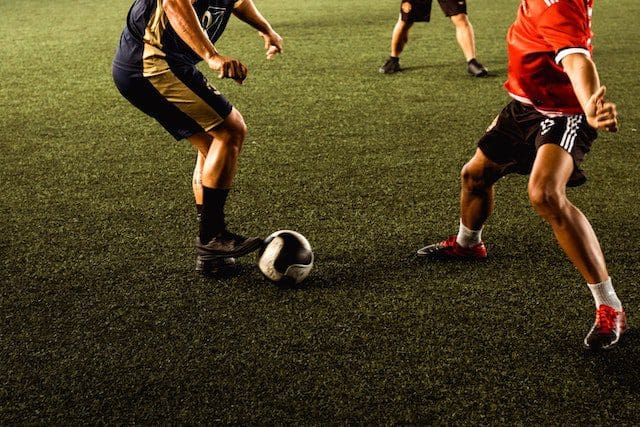The way of life for a footballer has changed dramatically over the years as more and more money has been pumped into the beautiful game. The necessity to be an athlete, not just a footballer, has become paramount to a successful career, especially at the top end of the game. Online betting sportsbooks consider these pre, post, and mid-season factors when setting their odds.
The idea of a celebrated talent like George Best is long gone. No more will you see a player be so good on the field while drinking, smoking in the evenings, and heading out to endless parties.
(George Best • Legendary Dribbling Skills)
The teams with the fittest players and the best preparation often are the favorites in today’s football betting, with players like Cristiano Ronaldo, even at the age of 36, being one of the favorites for the golden boot in the Premier League,
Paul Gascoigne found the hard way that the need for diet and exercise to strengthen your body would help recover from injury. As well as the physical side, a player’s mental health is aided by a good diet and exercise, and their concentration and ability to focus and make good decisions in the game are heightened.
Players like Gascoigne played under adrenaline and as a showman to the crowd. As much as this excited those in the stands, at times, it put him in dangerous positions, and injuries were caused that blighted his career.
The diet of old favorites of steak and chips or roast dinners is no longer being used before games; the filling foods that weigh and slow a player down are off the menu or altered dramatically. It is increasingly noticeable now as players take their diet seriously to identify players who may not be at full fitness when on the pitch.
Changes
Clubs will monitor their food intake during training hours, and several players hire personal chefs to ensure their food benefits their physical development. When Jurgen Klopp joined Liverpool, he insisted on the hiring of Mona Nemmer who was the Head of Nutrition at Bayern Munich. Individual player dietary plans were introduced, which did not stop at the training ground, but for their homes, travel to and from games, and during hotel stays for away games.
Antonio Conte banned several foods, including tomato ketchup and mayonnaise, as soon as he arrived in Tottenham. The diets for his player were changed as he looked to ensure what they ate helped fuel their bodies and minds to become stronger, fitter, and more focused.
Even before Conte’s arrival, star striker Harry Kane had a personal chef in his home as he says, “football is a short career and goes so quickly, I have a chef at home to eat the right food, helping recovery.” He is not the only one. With the rise of Jonny Marsh, the popular private chef for Premier League footballers, there has never been such a focus on eating right.
Water is the vital fluid, with players’ hydration levels monitored. Often water with added electrolytes is issued to boost hydration and energy fluids given in the game to fight against issues like cramps.
As the players are helped to be stronger and faster, the game’s speed has increased and finds players are required to sprint much more in the game than ever before, especially in the high press sides like Liverpool.
The physical demands on players in the Premier League have increased dramatically. Players are covering longer distances, and the intensity is increasing as well. From the 2006/07 season to the 2012/13 season, the number of sprints increased by 85%, and the distance covered at that intensity increased by 35%.
Training programs at clubs have had to be developed to ensure that the health of their players is not negatively affected by this change. Planning training workloads and the intensity of the session is vital, and how sessions are delivered alters throughout the season. Identifying the busiest periods for matches often brings less intense training. The earlier part of the season is often more intense than the later stages, meaning players’ training programs often depend on the stage of the season.
Rest has become equally important. Eating well and exercising are not the only ways a person needs to improve to reach their peak fitness. Without solid rest and recuperation, the body cannot perform to the requirements a player requires or their manager requires.
Premier League players are no longer just footballers, and managers have had to ensure the health and welfare of the player is always protected. And for those aiming to compete at the top, it is no longer just your ability on the ball that gets you there.
Featured Photo by Lucas Guimarães: https://www.pexels.com/










